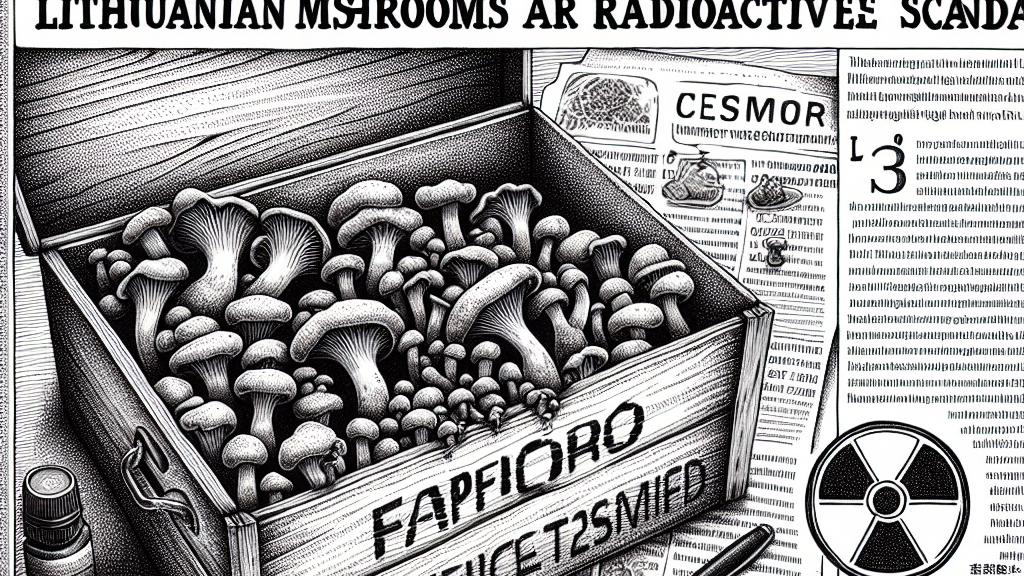Toxic Treasure: Lithuanian Mushrooms Caught in Radioactive Scandal!
Overview
- Lithuanian chanterelle mushrooms intercepted at Taiwan's border due to radioactive contamination exceeding safety limits.
- Detection of caesium-137 (Cs-137) raises alarms about agricultural practices and environmental safety in exporting regions.
- Broader implications highlight ongoing global food safety challenges, necessitating stricter regulations and oversight.

Radioactive Contamination Detected in Lithuanian Mushrooms
On July 30, 2024, Taiwan's Food and Drug Administration (TFDA) announced the interception of a shipment of chanterelle mushrooms from Lithuania after testing revealed alarming levels of radioactive contamination. The mushrooms contained 140.1 becquerels of caesium-137 (Cs-137) per kilogram, which exceeds the legal limit of 100 bq/kg set by Taiwanese authorities. This incident is significant, being the first occurrence of such a violation concerning Lithuanian fungi. It has prompted a decisive call for rigorous inspections and stricter regulations for all mushroom imports from Lithuania, as well as other countries with potential risks.
Implications of Radioactive Isotopes in Food Production
The detection of Cs-137 serves as a stark reminder of the potential dangers associated with agricultural contamination. Cs-137 is a byproduct of nuclear fission and exposure to it can have harmful health effects, including increased cancer risk. The Deputy Director-General of the TFDA, Lin Chin-fu, indicated that this contamination likely arose from environmental pollution where the mushrooms were cultivated. This scenario raises pressing questions around the adequacy of current agricultural practices in Lithuania and similar exporting countries. Appropriate measures must be employed to monitor environmental conditions, ensuring that food safety is prioritized in the production stages, thereby protecting consumers globally.
Global Food Safety Challenges and Future Actions
This incident not only highlights the immediate risks posed by imported food but also reflects the larger global challenges in food safety standards. Alongside issues with Lithuanian mushrooms, Taiwan has faced multiple violations from U.S. imports, notably seasonings containing ethylene oxide, a carcinogenic substance banned in Taiwan. These ongoing incidents intensify the call for international cooperation to strengthen food safety regulations and enhance inspection protocols. All stakeholders, from producers to consumers and regulatory bodies, must work together to drive improvements in safety standards, monitor compliance, and ensure that food entering the market poses no health risks. Only through vigilant oversight and collective responsibility can we protect public health and restore trust in the integrity of our food supply chains.

Loading...